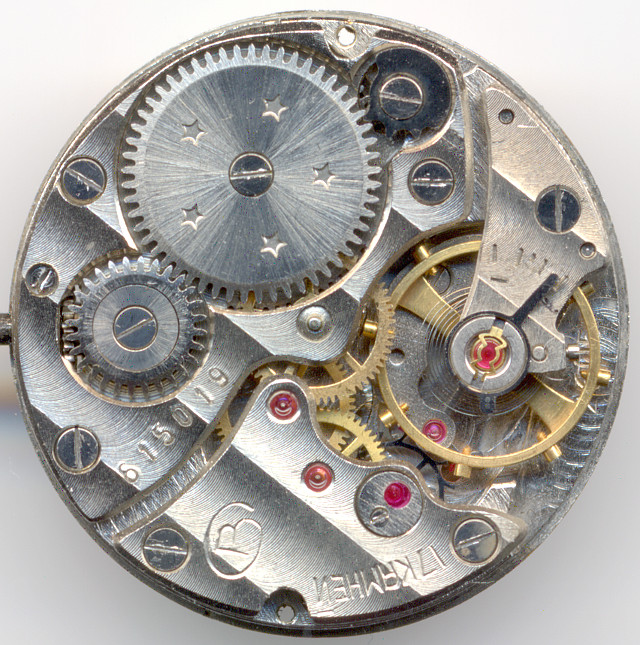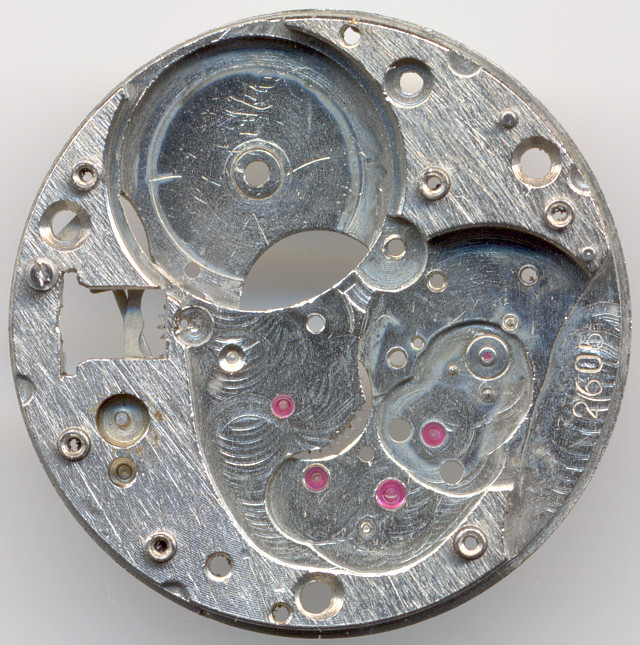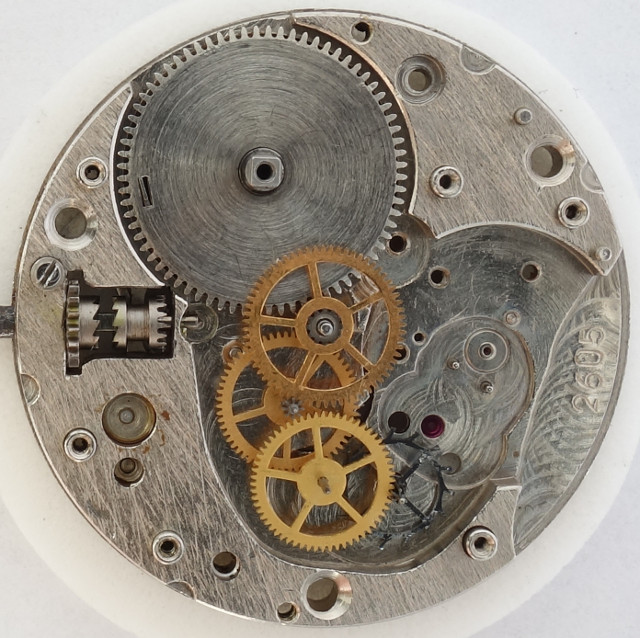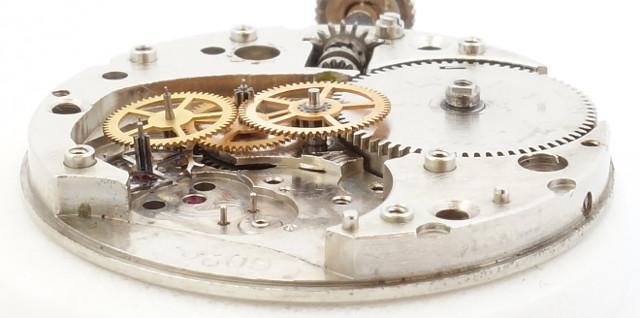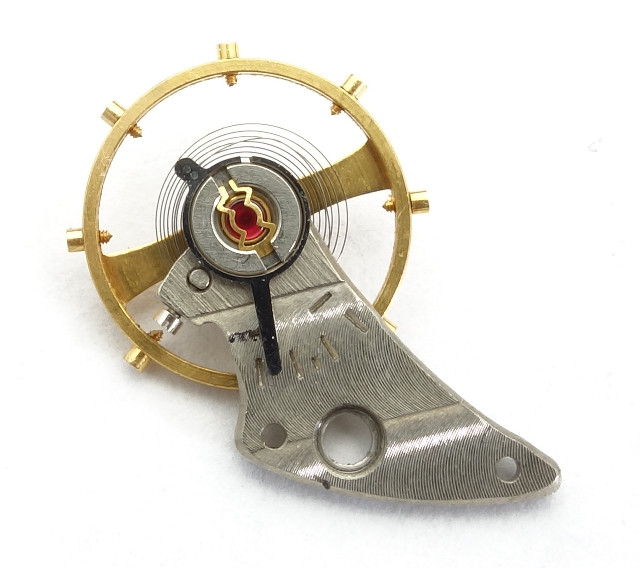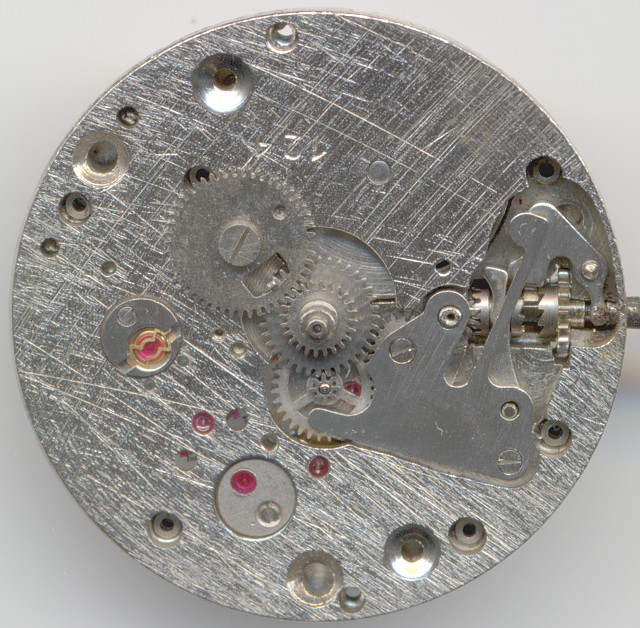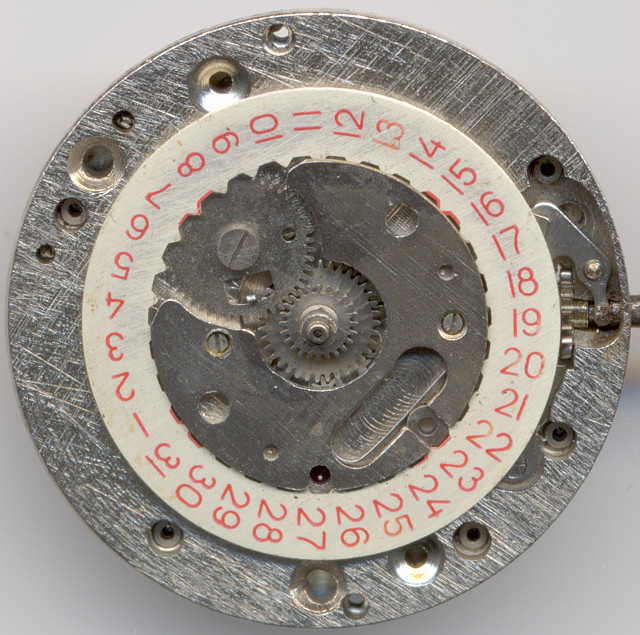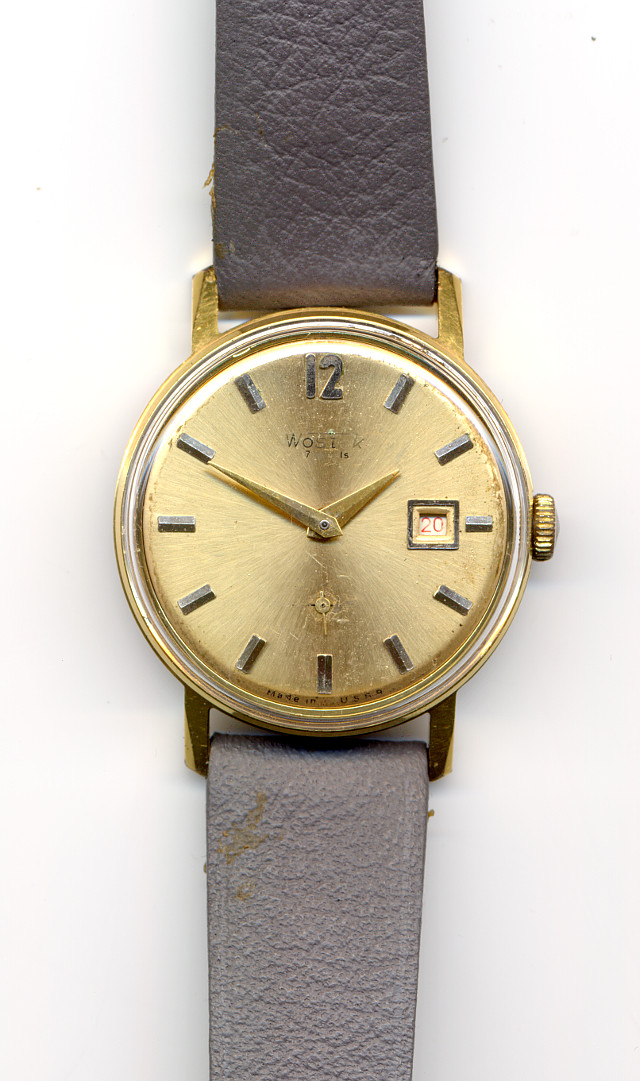Description
The Wostok 2605, which belongs to the “Pobjeda” movement family, and whose origins date back to the 1940ies, was probably made in the 1960ies. Originally, it was named “Tschaika”.
With its diameter of 26mm (11 1/2 lignes) is rather large, but it helps improving its precision and power reserve.
The base plate looks pretty crude, but that doesn’t limit its useability. All important bearings, except those for mainspring barrel and center minute wheel, are equipped with synthetic rubies. It’s odd, that a lot of space, escpecially on the left side, remains unused, missing the chance to use larger wheels to decrease sensivity against foreign parts and to increase accurancy.
The gear train with its relatively tiny gears uses the classical construction, where the large mainspring barrel drives the center minute wheel, followed by third wheel, seconds wheel (which decentral seconds hand at 6 o’clock) and finally the steel escapement wheel.
The visually very beautiful made golden tone screw balance regulates a swiss pallet lever movement. It it already shock protected and beats slowly with 18000 A/h.
The uniform arrangement of the eight balance wheel screws in a 45° angle is odd and it is doubtful, if they are really useful, or only good for visual purposes.
Not doubtful is, that the Breguet hairspring, which is used here, improves the accurancy and decreases the position errors.
The dial side is also very crude, no decorations, no sign of finishing, but technically, this is no disadvantage.
The Wostok 2605 uses a yoke winding system and two cap jewels (on both sides of the escapement wheel). The calendar mechanismus is very simple and consists only of a switching wheel at 11 o’clock. The slowly advancing date indication mechanism offers no quickset possibility.
It is noteable, how small the diameter of the red printed date ring is. On the dial, the date window is pretty small and quite near to the center.
The lock mechanism for the date ring is genious: A flat metal disc at 5 o’clock is pressed against the teeth of the ring with the help of a spring. This is sufficcient to ensure proper locking of the date ring.
In the lab
Timegrapher result
The extremely high amplitude on the horizontal positions is impressive, unfortunately it breaks in on the vertical positions, and so the rates vary pretty much. On a non damaged specimen, the timegrapher result would be much better, for sure, but nevertheless, on the tested specimen, the different positional rates will more or less neutralize each other.| horizontal positions | |||
|---|---|---|---|
| dial up | +94 s/d | 323° | 1.5ms |
| dial down | +98 s/d | 298° | 1.4ms |
| vertical positions | |||
| crown right (12 up) | -7 s/d | 216° | 1.7ms |
| crown up (3 up) | -50 s/d | 209° | 2.3ms |
| crown left (6 up) | -20 s/d | 220° | 2.4ms |
| crown down (9 up) | -114 s/d | 206° | 2.3ms |
Technical data
| Manufacturer: | Wostok |
| Caliber: | 2605 |
| Size: | 11 1/2''' (measured: 26,0mm) |
| Height: | 3,90mm |
| A/h: | 18000 |
| Number of jewels: | 17 |
| Escapement: | Pallet lever |
| Balance types: | Nickel screw balance |
| Shock protection(s): | Poljot |
| Balance bearing / direction hairspring: | Clockwise |
| Moveable stud: | no |
| Adjust mechanism: | Long regulator arm |
| Construction: |
|
| Construction type: | solid construction |
| Winding mechanism: | yoke winding system |
| Setting lever spring: | 4 holes |
| Features: |
|
| Inventory number: | 18005 |
